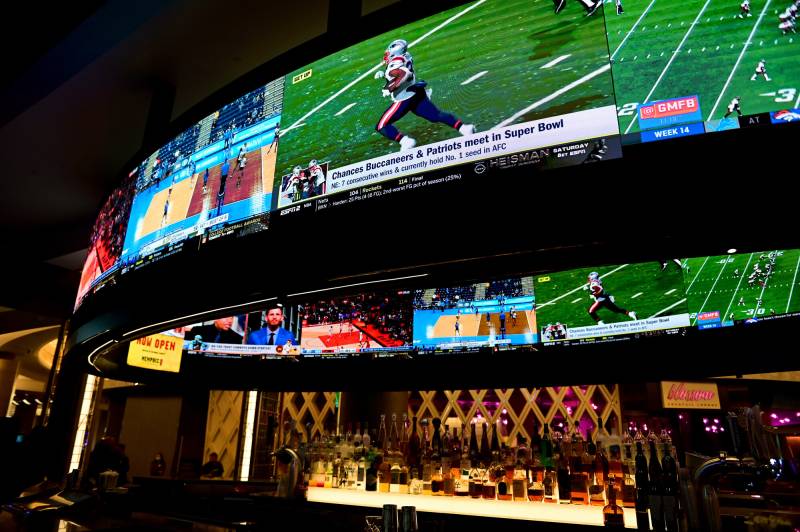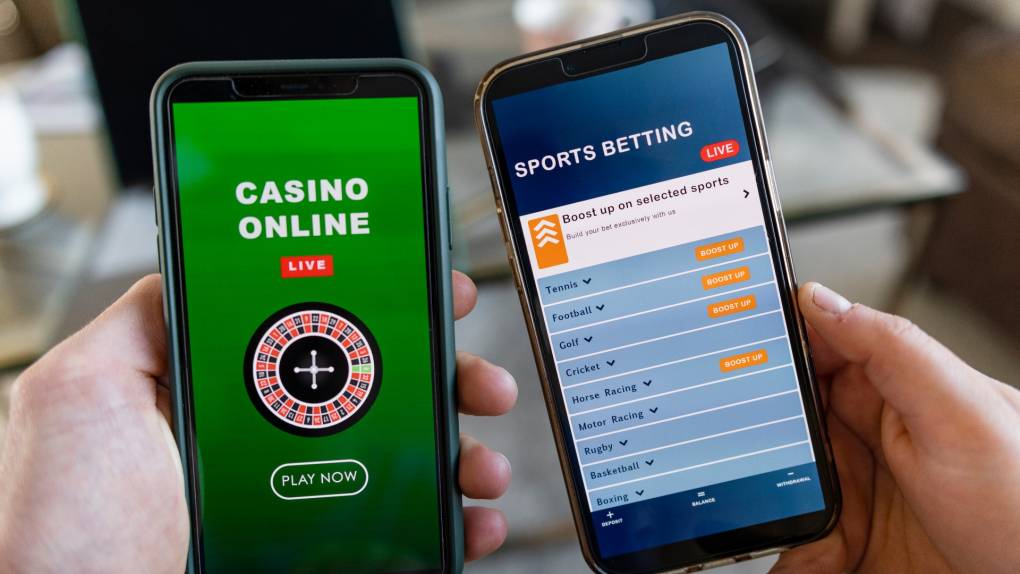Dr. Timothy Fong, co-director of UCLA’s Gambling Studies Program, which helps oversee CalGETS, said the majority of patients he sees now are specifically struggling with online sports betting.
“Gambling is ubiquitous, it’s accessible … you can’t turn without seeing it. You have a casino in your pocket,” Fong said. “Contrast that to me when I was 26 … if I wanted to bet on sports, I had to have a tremendous amount of effort to place any bet. I needed to drive somewhere, I needed to go to the bank, I needed to carry cash. I mean, it was an entirely different world.”
Fong believes that many of his younger patients would not be gambling excessively were it not for that access.
“I have so many patients who’ve said to me, ‘I’ve never set foot inside a brick and mortar casino in my entire life,’ and yet, they have a substantial gambling disorder,” he said.
Early adulthood is also a common time for people to begin gambling. State gambling helpline data shows that more people reported their gambling issues started between the ages of 18 and 25 than any other age group.
Leong, who quit gambling after lots of work, is now 32 and a social worker helping other people struggling with gambling problems. He said he’s also concerned by the increased access to gambling through phones.
“I think addiction is much more severe than it used to be,” Leong said. “I’d hear about stories where you call your bookie 10 times a day. Now, gambling online, you hear people firing off like 50 bets in an hour.”
Tomorrow’s gamblers
Gambling disorder experts argue that daily fantasy sports apps use similar tactics as social media sites to keep users engaged and coming back.
“Intermittent reinforcement, gamify it, constantly have this pressure that something new and fresh is coming and if you log off, you’re going to miss it,” Fong said.
It’s not only seen in sports betting and daily fantasy. Some experts are also criticizing video game companies for using similar tactics, which they say could prime children for gambling later in life.
Many video games sell so-called loot boxes. The boxes contain mystery prizes, and players buy them — often with real money — for a chance to win high-value items like special characters.
“Video games for many years, since the introduction of in-app purchasing, have utilized methods of sales for in-game consumable items, or digital items that follow psychological practices that make people more likely to continue to spend more money,” said Robert Jacobson, executive director of the California Council on Problem Gambling, which runs the state’s 1-800-GAMBLER helpline.
“It’s our position that many of those practices meet the legal definition of gambling,” Jacobson said.
The comparison makes sense. When a user purchases a loot box, they’re doing so in the hopes of winning a big prize, much like buying a scratch-off in the hopes of winning a jackpot.
And the connection isn’t lost on the users.
Beginning in 2018, the helpline began asking some callers whether they’ve ever spent more time or money on video games than they could afford because it gave them a gambling-like rush. In 2019, 219 callers answered yes. Five years later, that figure had climbed to 345.
Fong said he saw firsthand how captivating loot boxes could be for his own son, who was playing an NBA video game.
“He kept buying these packs to try and get the player he wanted,” Fong said. “But he kept buying, and he kept not getting it. Buy, buy, buy. Eventually, in the span of about two hours, he spent $1,000.”


